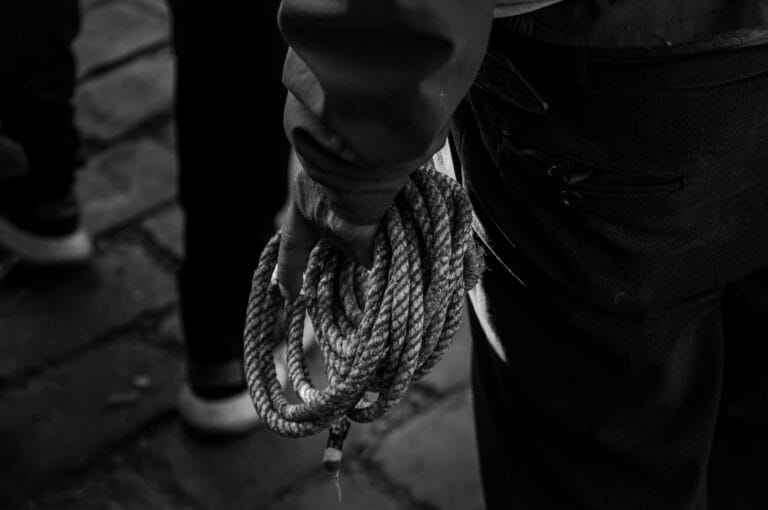A few years ago, I finally found the courage to admit to one of my close friends that I was dealing with an addiction. It wasn’t easy. But after listening to Pastor Michael Todd’s message, “Raise the Rim,” I felt a strong conviction. It felt like God was telling me it was time to stop hiding. Opening up was a major step, and over the next few years, I slowly let more people in. Some offered to be my accountability partners, and I thought that was exactly what I needed to start on my journey of Addiction recovery.
But as time went on, things didn’t go as planned. I didn’t put enough effort into the accountability structure we had set up. At first, I would check in regularly, but eventually, the guilt and shame of relapsing took over. I stopped reaching out. I didn’t want to face my friends or even myself. I knew deep down they probably wouldn’t have judged me, but the weight of my own failure was too much.
This experience taught me an important lesson: accountability alone isn’t enough. It takes a balance of grace and grit—compassion and discipline—to truly navigate the journey of addiction recovery.

Understanding Grace in Recovery
Grace is a word we hear a lot in church, but living it out can be harder than we think. Grace is unmerited favor—God’s love and forgiveness, even when we don’t deserve it. For those of us struggling with addiction, grace is essential. We often hold ourselves to impossible standards, expecting perfection. When we stumble or fall, it’s easy to spiral into guilt, shame, and self-condemnation.
But the truth is, God’s grace covers our mistakes. Romans 8:1 tells us, “There is no condemnation for those who are in Christ Jesus.” We don’t have to live in shame. God sees us, knows us, and still loves us. He doesn’t expect us to be perfect, but He does call us to keep moving forward, trusting in His grace.
Romans 8: 1 (NIV) Therefore, there is now no condemnation for those who are in Christ Jesus,
When I was caught in the cycle of relapse and guilt, I had to learn to give myself the same grace that God was offering me. It wasn’t about excusing my behavior, but about allowing myself the space to grow and heal without being crushed by the weight of my failures. Grace reminds us that we are still worthy of love and redemption, even when we mess up.
The Role of Accountability
While grace is critical, accountability plays an important role in recovery too. Accountability helps us stay on track, keeping us grounded in the commitments we’ve made to ourselves and others. But here’s the catch: accountability only works when we engage with it honestly and consistently.
In my journey, I had people willing to walk alongside me, offering their support and prayers. They became my accountability partners, checking in on me regularly. But I wasn’t always honest. I didn’t always open up about my struggles, and when I relapsed, I would pull away. I let the guilt build up inside me, and instead of reaching out, I withdrew.
Accountability is more than just having someone to report to. It’s about having someone who can lift you up when you fall, encourage you to keep going, and remind you of your worth when you feel unworthy. However, it also requires you to show up and do the work. Without that personal effort, accountability can only go so far.
Balancing Grace and Grit
So, how do we balance grace and grit in addiction recovery? It starts with understanding that both are necessary. Grace allows us to forgive ourselves when we slip, while grit pushes us to keep going even when it’s hard.
Grace: Forgiving Yourself After a Relapse
One of the hardest things to do after a relapse is to forgive yourself. It feels like all your hard work has been erased, and the shame can feel unbearable. But that’s where grace comes in. We need to remind ourselves that recovery is a journey, not a straight line. Proverbs 24:16 says, “Though the righteous fall seven times, they rise again.” It’s not about how many times we fall; it’s about getting back up every time.
When we fall, we can choose to accept God’s grace, forgive ourselves, and keep moving forward. This doesn’t mean we ignore the relapse or pretend it didn’t happen. Instead, we acknowledge it, learn from it, and move on. God’s grace is big enough to cover our failures, and it’s in His strength that we find the courage to try again.
Grit: Putting in the Work
Grace is essential, but grit is just as important. Recovery requires hard work, dedication, and perseverance. It’s easy to give up when things get tough, but grit is what keeps us going. It’s the determination to stick with it, even when we want to quit.
For me, grit meant being honest with my accountability partners, even when I didn’t want to be. It meant facing the uncomfortable truth of my addiction and being willing to take the necessary steps toward healing. It wasn’t easy, and there were days I wanted to give up. But I had to remind myself that recovery is worth fighting for.
James 1:12 encourages us, “Blessed is the one who perseveres under trial because, having stood the test, that person will receive the crown of life that the Lord has promised to those who love him.”
Grit is about pushing through the trials, knowing that God is with us every step of the way.
Moving Forward: Finding the Right Balance
As I’ve walked this journey, I’ve learned that balancing grace and grit is a daily challenge. There are days when I lean more into grace, forgiving myself for mistakes. Other days, I rely on grit, pushing myself to keep going even when it feels impossible.
The key is finding the right balance. We need grace to remind us of God’s love and forgiveness, but we also need grit to help us stay committed to the process. Recovery is not about perfection—it’s about progress. It’s about showing up, doing the work, and trusting that God’s grace will carry us through.
Conclusion: Keep Moving Forward
If you’re struggling with addiction, know that you’re not alone. The journey is tough, but with grace and grit, you can keep moving forward. Lean into God’s grace when you feel weak, and rely on grit when you feel like giving up. Surround yourself with people who will hold you accountable, but don’t forget to give yourself grace when you fall.
Remember, God’s love for you is unchanging, and His grace is always enough. Keep fighting, keep pushing, and keep believing that recovery is possible. With grace and grit, you can overcome anything.

John Thole is the voice behind Beyond Salvation, a blog that captures the highs and lows of life through faith, laughter, and honest reflection. With a passion for storytelling, technology, and spiritual growth, he creates content that resonates with seekers, believers, and anyone navigating life’s journey. Whether sharing personal insights, devotionals, or thought-provoking discussions, John aims to inspire, uplift, and spark meaningful conversations.


